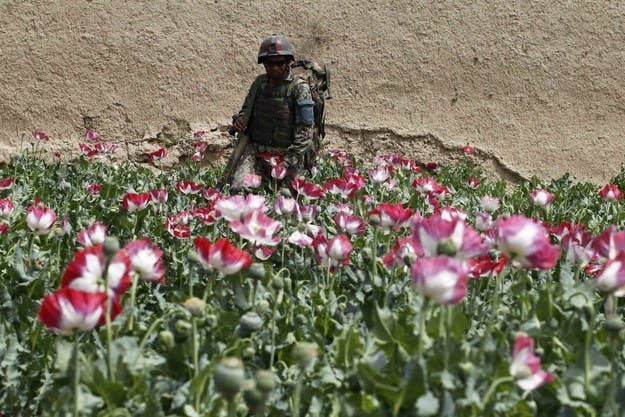
A new report from the Special Inspector General for Afghanistan Reconstruction (SIGAR), released Tuesday, shows that despite the American government's best efforts opium production is increasing in Afghanistan.
Special Inspector John Sopko was blunt about the trend in a letter he sent with the report to Secretary of State John Kerry, Secretary of Defense Chuck Hagel, Attorney-General Eric Holder, and USAID Administrator Rajiv Shah.
"As you know, the narcotics trade poisons the Afghan financial sector and undermines the Afghan state's legitimacy by stoking corruption, sustaining criminal networks, and providing significant financial support to the Taliban and other insurgent groups," Sopko wrote. "Despite spending over $7 billion to combat opium poppy cultivation and to develop the Afghan government's counternarcotics capacity, opium poppy cultivation levels in Afghanistan hit an all-time high in 2013."
"According to the United Nations Office on Drugs and Crime (UNODC), Afghan farmers grew an unprecedented 209,000 hectares of opium poppy in 2013, surpassing the previous peak of 193,000 hectares in 2007," the report said.
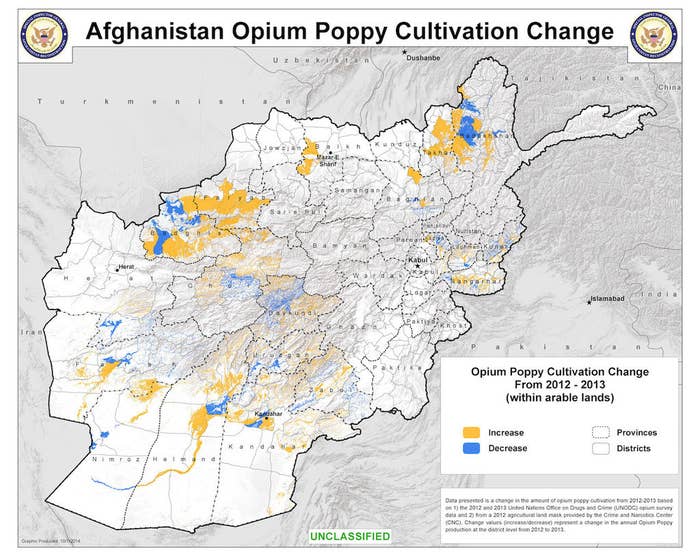
Afghanistan two years ago produced around ninety percent of the world's opium and was the source last year of seventy-five percent of the world's heroin.
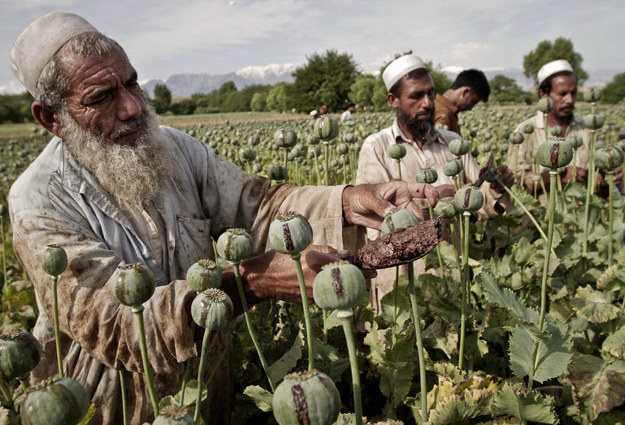
Even what should be good news — that more land in Afghanistan is now able to support farmland — is overshadowed due to the surge in poppy production.
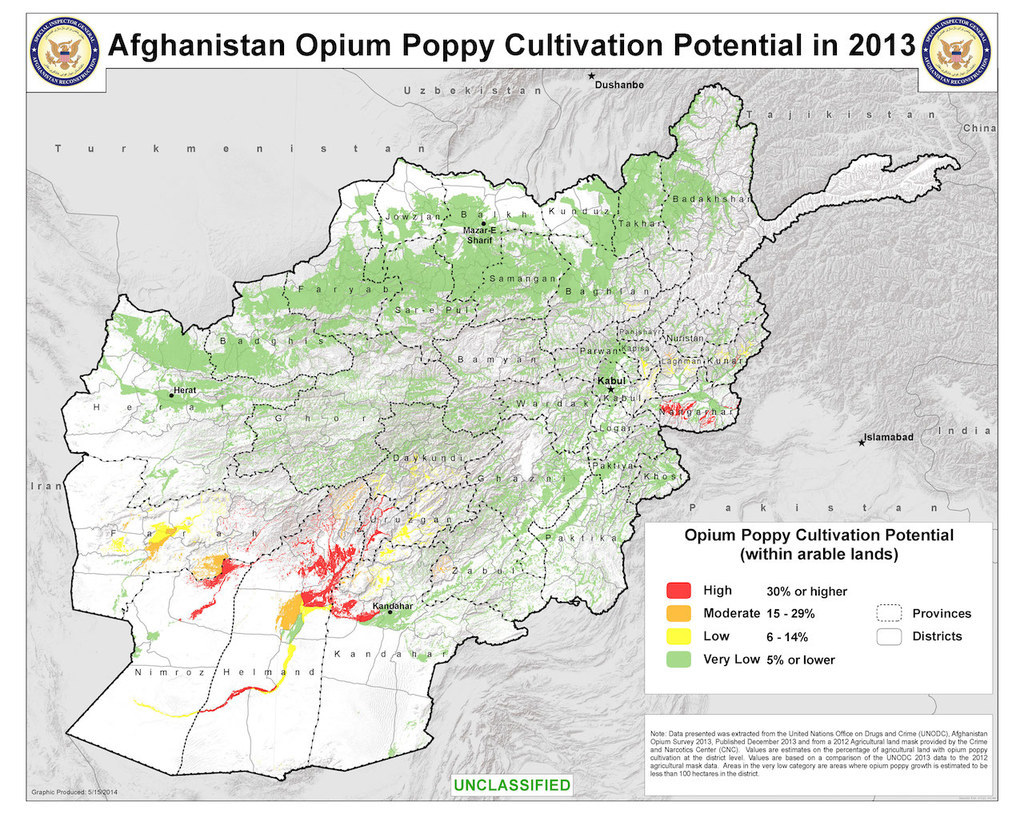
"Affordable deep-well technology has turned 200,000 hectares of desert in southwestern Afghanistan into arable land over the past decade," the report reads. "Due to relatively high opium prices and the rise of an inexpensive, skilled, and mobile labor force, much of this newly-arable land is dedicated to opium cultivation."
Eradication efforts actually managed to strengthen the Taliban, who casts themselves as protecting poor farmers trying to make a living while still profiting from taxing the plant's production.
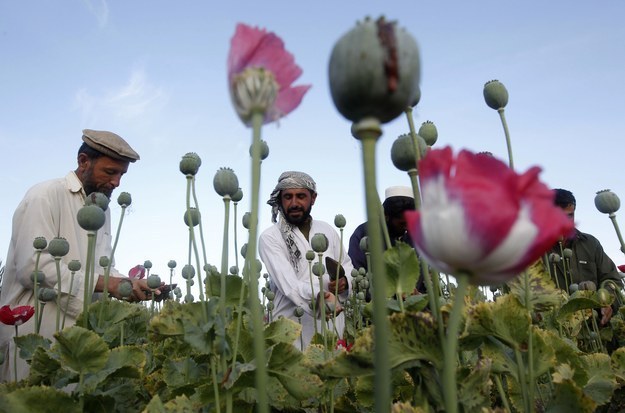
In 2009, the U.S. shifted its policy on eradication, noting that it appeared to be a futile effort. As TIME reported, Russia in 2010 — citing its 200,000 heroin and morphine addicts and 30,000 deaths each year — called for a poppy eradication effort, but NATO refused.
"We cannot be in a situation where we remove the only source of income of people who live in the second poorest country in the world without being able to provide them with an alternative," NATO spokesman James Appathurai said at the time.
In past years, surges in opium poppy cultivation have been met by a coordinated response from the U.S. government and coalition partners, which has led to a temporary decline in levels of opium production. However, the recent record-high level of poppy cultivation calls into question the long-term effectiveness and sustainability of those prior efforts. Given the severity of the opium problem and its potential to undermine U.S. objectives in Afghanistan, I strongly suggest that your departments consider the trends in opium cultivation and the effectiveness of past counternarcotics efforts when planning future initiatives."
